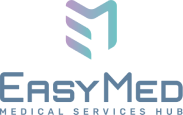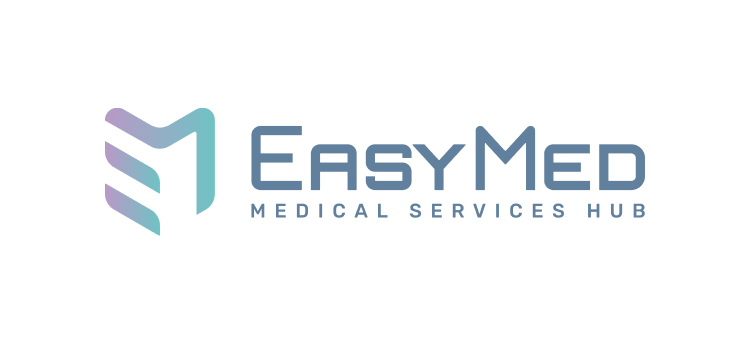
Magnetic resonance imaging (MRI)
Magnetic resonance imaging is an advanced medical imaging technique that uses a magnetic field and radio waves to create detailed images of the internal organs and tissues of the human body. MRI makes it possible to accurately diagnose various diseases and conditions, which is especially important for the timely start of treatment.
Дополнительные процедуры:
- Лабораторный анализ мочи
- Элемент списка #2
- Элемент списка #3
Varieties of MRI
MRI with EasyMed
EasyMed is a reliable partner in the organization of diagnostic procedures. Our task is to make the process of recording and performing MRI as convenient and fast as possible, contributing to the early detection of diseases and effective treatment.
The EasyMed team selects the best MRI specialists and clinics, ensuring clients have access to high-quality medical services.
Diagnostic capabilities of MRI:
Magnetic resonance imaging (MRI) provides a detailed image of the body’s internal structures, making it possible to diagnose various diseases. The procedure effectively detects problems in the soft tissues, joints, brain, spine and internal organs. MRI can detect tumors, inflammatory processes, injuries after injuries, developmental abnormalities, circulatory diseases and many other pathologies.
MRI process:
To undergo an MRI, the patient arrives at a pre-selected clinic at the appointed time, registers and completes the necessary documents.
Next, the patient will have to remove all metal objects (jewelry, watches, glasses, etc.) and, if necessary, change into medical clothing.
The patient then lies down on the movable table of the MRI machine. The table slowly moves inside the magnetic tunnel where the scanning takes place. At this point, it is important to stay still.
The procedure lasts 15 to 60 minutes, depending on the study area and the specific diagnosis task. The use of a contrast agent may increase the duration of the procedure.
After the scan, the patient is helped to get up from the table. If necessary, you can rest for a while before leaving the clinic.
Conclusion and Interpretation of Results:
Once the MRI is complete, the images are analyzed by a specialist radiologist. Deciphering the results can take a few hours to a few days. The data obtained is transmitted to the attending physician, who discusses it with the patient, explaining the diagnosis and suggesting a treatment plan if necessary.
Preparation for MRI:
- Before the procedure, removing all metal objects, including jewelry, watches, glasses, credit cards and electronic devices is important. The metal can interact with the magnetic field of the MRI machine.
- It is recommended to wear comfortable clothing without metal elements. Some clinics may provide special clothing.
- You should tell your doctor about any medical implants you have, such as pacemakers, cochlear implants, metal plates, or screws.
- It is important to notify your doctor of medical conditions, recent surgeries, and allergies, significantly if they affect the MRI procedure.
Preparation for MRI with contrast agent:
- Your doctor or healthcare provider will give you instructions on preparing for your contrast agent, including possibly abstaining from food and drink for a few hours before your procedure.
- Tell your doctor about any known allergies, especially to iodine or previous reactions to contrast agents.
- Because the contrast is excreted through the kidneys, a blood test may be needed to check their function, especially in patients over the age of 60 or those who have kidney problems.
- Talk to your doctor about whether you need to take or temporarily stop certain medications before your procedure.
Important! A referral from the attending physician is required for an MRI procedure. Follow all instructions of the clinic’s medical staff to ensure maximum safety and efficiency of the examination.
Contraindications to MRI
Due to its non-invasiveness and the absence of ionizing radiation, MRI is a safe procedure for patients of all ages. However, there are several contraindications to MRI; they can be divided into relative and absolute.
Relative contraindications:
These contraindications do not always preclude the possibility of MRI, but require special attention and sometimes alternative approaches:
- Claustrophobia: In patients with a fear of confined spaces, the procedure may cause discomfort, however, there are ways to reduce this exposure, such as using open MRI machines or light sedatives.
- Pregnancy: Especially in the first trimester. The effects of magnetic fields and radio waves on the developing fetus are not fully understood, so a doctor's consultation is necessary.
- Availability of medical devices: For example, insulin pumps, some types of hearing implants, and other devices that are sensitive to a magnetic field.
Absolute contraindications:
These factors can completely rule out MRI due to the high risks to the patient’s health or life:
- Pacemakers and defibrillators: Many of these devices are incompatible with the magnetic field of MRI.
- Metal Implants and Fragments: These are especially important in the case of metal fragments in the eyes or close to important organs.
- Some types of aneurysm clips, especially those used in neurosurgery, can be sensitive to the magnetic field.
- Tattoos with metal-containing dyes: Some old or certain types of tattoos may contain metal that heats up during an MRI.
- Weight restriction: Depending on the model of the MRI machine, there may be a limit on the maximum weight of the patient.
Important! Notify the doctor of all medical devices, implants, and other important medical aspects before the MRI procedure. Sometimes, it may be necessary to consult a specialist to assess the risks and decide whether the procedure is appropriate.
MRI with contrast medium
MRI (magnetic resonance imaging) with contrast is a type of diagnostic medical imaging that uses a contrast agent to improve the clarity and detail of images. A contrast agent, usually containing gadolinium, is injected intravenously into the patient’s body. This substance enhances the contrast between tissues and body structures, making certain areas more visible on MRI images.
Why do you need a contrast agent?
- Contrast improves the visibility of tissues. This is especially important for detailing tumors, inflammatory processes, vascular diseases and abnormalities in soft tissues.
- It helps to determine the boundaries and nature of tumors, including the distinction between benign and malignant neoplasms.
- Facilitates detecting and evaluating inflammatory processes such as abscesses or infectious diseases.
- It allows you to examine the condition of blood vessels and detect aneurysms, vascular blockages or other circulatory disorders.
- It helps in assessing the extent of damage after injuries.
Safety:
The contrast agents used in MRI are considered safe for most patients, however, it is important to inform the doctor of any allergies or other problems, especially impaired kidney function.
Side effects:
Rare, but may include mild allergic reactions such as itching or rash. More severe reactions are infrequent.
Benefits of contacting EasyMed
Contacting EasyMed is especially valuable for those who need a speedy diagnosis. A timely MRI procedure can play a crucial role in treating many diseases. The EasyMed team ensures that clients receive the medical care they need in the shortest possible time.
- EasyMed specializes in MRI surgical appointments, offering a selection for the procedure within 24 hours.
- Cooperation with many clinics throughout Israel allows us to choose a convenient location for MRI for the client.
- Each client's personal preferences and requirements are considered, including preferences for the clinic's location.
- EasyMed simplifies the application process by providing full support from the moment of application to the receipt of results.
- Clients avoid the difficulties of searching for a clinic on their own and long queues.
- After the procedure, EasyMed assists in obtaining the MRI results quickly, as well as arranging additional consultations and procedures if necessary.
Want to make an appointment for a review?
Fill in the following details
and we will contact you as soon as possible
Faq
Frequently asked Questions
We provide personalized healthcare services. Our main goal is to provide you with a quick appointment for the necessary medical examination or consultation with a doctor.
There is no need to wait several months: with us you will get to the right specialist in the shortest possible time.
Waiting times depend on the complexity of the procedure and the doctor’s profile. We can make an appointment with some specialists within 24 hours. For complex procedures, the waiting period of which reaches several months, you will be treated with us within 2-3 weeks.
There are a number of procedures (for example, complex types of MRI) that the patient can wait about a year and a half. We can reduce this period to 3 months.
We cooperate with leading specialists in various fields, as well as with top clinics and laboratories throughout Israel and abroad.
Our doctors use the latest treatment protocols and the most advanced technologies. The clinics we work with are equipped with modern equipment that provides the most accurate results.
Our partners are experienced professionals who have earned trust due to their experience, knowledge and professionalism.
We operate in all regions of Israel. Your appointment will be scheduled at the location most convenient for you.
The cost of services depends on the complexity of the procedure and the doctor’s profile. For accurate information and cost calculation, leave your details or call: 033083020
Yes, absolutely. Confidentiality and protection of our clients' personal information is one of our key priorities. We strictly adhere to all legal and ethical standards to ensure the maximum security of your data.
Our specialists will check whether in a particular case a refund from the insurance company is due. If yes, then after completing the procedure, a receipt will be sent to the insurance agent, who, in turn, makes a request to the insurance company to return the amount due to the patient for the procedure completed.



